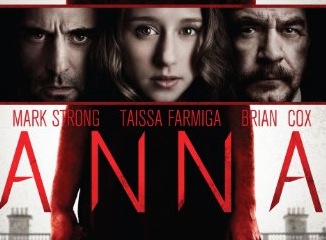
 Sci-fi psychodrama that fails to deliver on the promise of a mysterious story of extra sensory perception.
Sci-fi psychodrama that fails to deliver on the promise of a mysterious story of extra sensory perception.
Mark Strong (Jim Prideaux in the 2011 remake of “Tinker Tailor Soldier Spy”), comes back a good guy. He is still as cold and calculating as ever, approaching the diagnosis of his most recent case as he approached the mystery mole in “Tinker.” Strong plays John Washington, an investigator who can enter people’s minds and make them recall their memories in order to solve actual or potential serious crimes. In other words, John is a “viewer.” Mark Strong’s performance is the bright side of this film, although it is much the same throughout and much the same as we saw in “Tinker.” Unfortunately, this film does have a shadow of the story or a shadow of the screenplay that greased the skids for “Tinker” on the road to box office Valhalla. Strong’s performance stands out only when compared to the rest of the film that features very little new or interesting in the art and science of the sci-fi psycho thriller.
Washington meets with his mysterious supervisor, Sebastian (Hannibal Lecter in the “Manhunter”) and the two discuss an urgent case. Washington has been sidelined and other mind-readers have been called up to take his place. But this case is special (how it is special we never know for sure, except that Washington needs the money). Neither cop nor counselor, Sebastien supervises, controls and assigns a group of viewers when the need arises. To say that this shrink is in the catbird’s seat is an understatement. He is, essentially, the head mind reader of a group of mind readers.
Washington is not the best, he is the second or third best, but this is his chance at redemption (ho-hum). He was the best until he started having mental problems of his own and people close to him started dying. What his mental problems have to do with the story is never described for the viewer. This back story becomes one of several back stories told through dreadfully hackneyed memory reading exercises that lead nowhere until, viola, the truth is finally disclosed at the end. Or, at least, partially disclosed.
In this case, Sebastian needs a special someone to take the case of Anna (Taissa Farmiga—“The Bling Ring”). Anna is a teenager who possesses a genius mentality. In fact, as her modest mom describes it, her IQ is “off the charts” (Why is genius IQ the first thing that ill-equipped screen writers grab to define a sci-fi lead character? Regan in “The Exorcist” didn’t have it. Carrie didn’t have it. One does not have to be Einstein to kill.)
Anna may or may not harbor thoughts of mayhem including bringing poison to tea parties and finding new ways to use letter openers. OK, she is not finding new ways to use letter openers, because letter openers have been used to kill people since the dawn of the horror story; and when it comes to unique plot tools, poison is not any better. Therein lies the problem with this too derivative version of the teenage girl possession murder-mystery, it is too derivative. There is nothing new in the plot, nothing new in the cinematography and definitely nothing new when it comes to special effects.
The viewer’s trepidation starts when Washington drives up to Anna’s house, a dreadfully haunted-looking mansion that bears a remarkable resemblance to the one in Mel Brooks “Young Frankenstein.” Then a brief conversation where the “off the charts” IQ is mentioned and the long walk up the ridiculously high spiral staircase to Anna’s room, apparently in either the attic or the bell tower. Later as Washington is caught red-handed by Anna’s father as he rifles through his desk the viewer is baffled as to why this overused scene is shown.
Nor is there anything new in the acting of Mark Strong anywhere else in the film. He is good, and his style fits the part, but this is not to be mistaken for acting. The same holds true for Famiga, who is in far over her head as a super-sensory genius mystery thriller lead. She has no particular edge, that, apparently, being left to the screenplay and to the original story. Although there is the possibility that the screenplay left out much of what was in the original story, this does not seem likely since the credited screenwriter, Guy Holmes, co-wrote the story with Martha Holmes. Perhaps some of this can be laid at the door of debut feature director Jorge Dorado. Perhaps he wanted something predictable and vanilla flavored for his first film. If that was his goal, he achieved it.
There is sexual innuendo that is never thoroughly developed or placed in a credible position as a causal factor in Anna’s behavior or in the behaviors of those around her. The film ended up with an MPAA rating of R for nude sexual images which could have been left out of the film with little loss of plot development. All-in-all, a good try for new director Dorado, but surely his best films are still ahead.